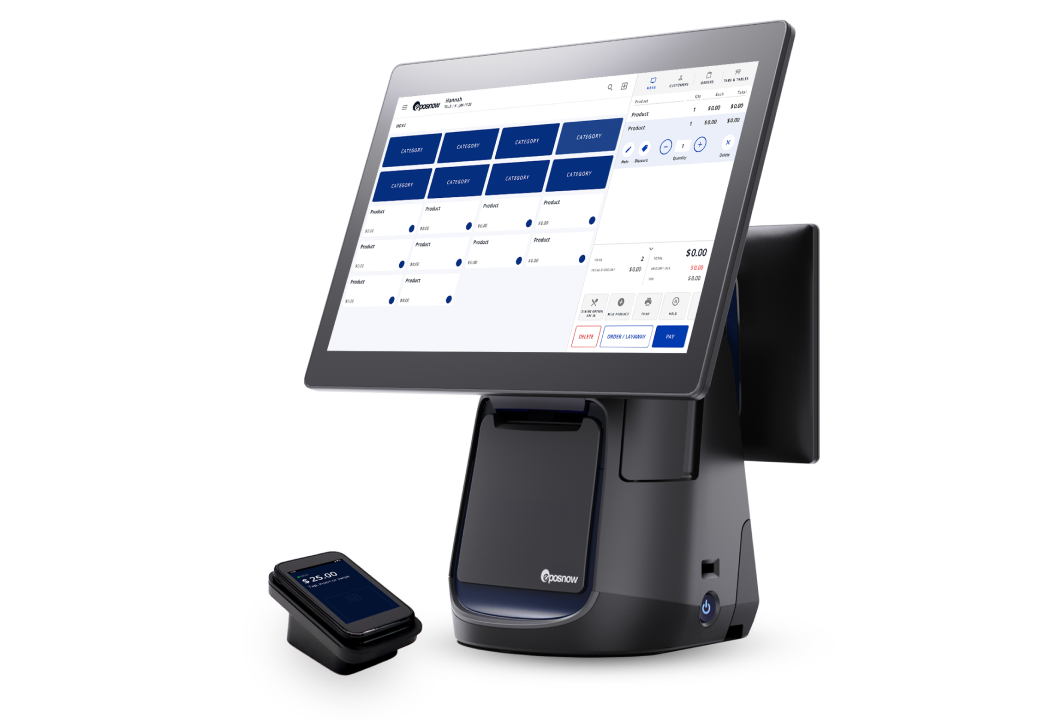Essential Guide to Hiring Seasonal Workers Effectively and Efficiently
Every holiday rush, summer surge, and major event tests businesses. Will you meet the demand, or buckle under pressure? The answer often lies with seasonal employees, a workforce many overlook.
These are not just temporary hires. They’re the face of your brand during its busiest, most critical moments, greeting and engaging customers, resolving problems, and shaping your reputation.
6.9 million people in the United States hold temporary or contingent jobs. That's nearly seven million people waking up each day knowing their job might not exist next week, next month, or even tomorrow.
Yet, businesses often treat seasonal hiring as an afterthought - a rushed task before chaos begins. And when things fall apart, the connection is clear.
What if we changed that? What if seasonal hiring became a strategic advantage, a chance to build teams that deliver results, resilience, and excellence?
This guide will show you how to approach seasonal hiring with purpose and precision, building teams ready to thrive in the chaos of peak seasons.
What is seasonal hiring?
Seasonal hiring is exactly what it sounds, hiring seasonal workers to help meet the demand during peak periods. Think about it. The busy holiday season, summer, or any time of year when your business sees a surge in activity.
Whether it’s retail, hospitality, or events, these are times when you simply can’t rely on your regular employees alone. That's when your seasonal employees step in to take on temporary roles that help businesses keep up with the rush, be it the holiday rush or Labor Day weekend.
Types of seasonal workers
There are different types of workers that businesses can bring on board:
-
Temporary workers: These are employees hired for a specific period, typically to cover the busiest months or events. Many businesses bring in them in for a few weeks or months, like retail workers during the holiday season or event staff during festivals.
-
Contract workers: Contract workers are typically hired for specific projects that have a defined start and end date. Unlike temporary workers, they may work independently on their assignments, such as marketing campaigns or construction jobs, and may have a set contract outlining the terms of their employment.
-
Interns: While internships are often associated with learning, productivity, and career-building, many businesses bring interns on board during seasonal spikes. Interns can provide valuable assistance and may even be offered a permanent role after their internship ends, depending on their performance, how they fit into workplace culture and company needs. They’re often seen in industries like hospitality or events, helping out during busy periods.
-
Freelancers: Freelancers are a popular option for businesses that need specialized skills for short-term projects, such as graphic design, copywriting, or social media management during busy seasons. Freelancers often tap into the gig economy, offering flexibility for businesses and workers alike. Many businesses prefer freelancers for seasonal help, as they don’t need to provide benefits or long-term commitments, and they can freelance and do remote work.
What’s the difference between seasonal and regular employment?
Seasonal employees are hired for a limited time, usually to meet the demand during peak periods. They are not intended to be long-term hires. Once the rush is over, their job ends.
On the other hand, regular employees are those who work year-round. These are your full-time employees and part-time employees, who enjoy the stability of a permanent position with consistent work and have an ongoing employer-employee relationship. They’re on the payroll and are entitled to more comprehensive benefits, like healthcare, paid time off, development, and possibly even retirement plans, depending on the company.
How many hours do seasonal employees work?
The number of hours seasonal employees work can vary widely depending on the business and the level of demand during peak times. Generally, seasonal workers work fewer hours than those in full-time employment due to the benefits that full-time workers are entitled to.
The duration of seasonal employment also depends on the employer's requirements. Some businesses may only need extra help for a couple of months, while others may need seasonal employees for as long as six months or longer. Since the demand for seasonal workers tends to be temporary and variable, work hours are often subject to change.
Now, as a business owner, it's important to keep in mind the legal aspects of seasonal employment. While these are not permanent employees, you still have to comply with labor regulations under the Fair Labor Standards Act (FLSA) and the Affordable Care Act (ACA).
For instance, the FLSA mandates that non-exempt employees receive overtime pay for hours worked beyond 40 in a workweek. So, if a seasonal worker in retail works 50 hours in a week, they're entitled to overtime pay for the 10 hours exceeding the standard 40-hour workweek.
How much do seasonal workers get paid?
The compensation for seasonal workers varies based on factors such as industry, location, and the specific role. In the United States, the federal minimum wage for covered non-exempt employees is $7.25 per hour. However, many states have established higher minimum wage rates. When both federal and state minimum wage laws and labor laws apply, employees are entitled to the higher of the two rates.
Now, just because the minimum wage is $7.25, that doesn't mean you shouldn't look to pay your seasonal employees a little extra cash. For reference, here's some industry specific rate averages.
-
Retail: Seasonal retail workers typically earn between $12 and $20 per hour worked.
-
Hospitality: Now, the hospitality industry has a lot of different seasonal roles available. From chalet hosts at popular ski destinations, to private chefs, to hotel receptionists. So, depending on the role, you could have to pay anywhere from minimum wage, to hundreds of dollars an hour.
Can seasonal workers become permanent?
Converting seasonal employees to permanent staff is absolutely doable and it's even beneficial for both the business and employee alike.
For the employee, transitioning to permanent status can mean more job security and potential benefits.
From a business standpoint, hiring someone who has already proven themselves during the seasonal period can save you time and money in recruitment and training programs. And if they’ve excelled in their temporary role, you’ve got a ready-made team member who’s already committed to the company’s success.
Benefits and challenges of seasonal staffing
So what are the perks and pits of hiring seasonal employees? Let's explore.
-
Extra hands
-
Lower benefits cost
-
Your full-timers get some relief
-
Great if you have a labor shortage
Now, let’s talk risks.
-
Decreased commitment
-
May have less employee engagement
-
Recruitment challenges
-
Shorter onboarding period
Finding and hiring seasonal employees
So, you’ve decided that seasonal workers are the way to go—smart move. But now the real question is: where do you find these golden people who can swoop in and help you conquer your busiest season?
-
Former staff: You’ve been through busy seasons before, right? Well, why not call up those former seasonal employees? They know the ropes. They’ve been there, done that, and they’re going to hit the ground running faster than anyone else. And here's a bonus: they might even help train the new batch of recruits.
-
Employee referrals: Don’t be shy. Ask your full-time staff to spread the word. Offer them a little incentive, a referral bonus, perhaps?
-
Recruiting events: hink open houses, career fairs, you name it. Set up a booth, throw some snacks, and talk to as many people as you can. Get face-to-face with potential candidates.
-
Social media: You’d be surprised how many people follow you because they like your brand or are interested in working with you. Post perks, post happy employees, post anything that will make people excited about being a part of your team. The more you show off what you’ve got, the more people will want in.
Onboarding and training seasonal workers
Now that you’ve found your dream seasonal team, it’s time to onboard them and get them up to speed. And listen, we're going to be real with you: getting them ready fast is essential. Time is money, and you can’t afford to waste either. So let’s talk about how to do this the right way.
-
Keep it simple: Don’t overwhelm them with a ton of info. They’re new. They’re here for a short time. So, focus on the essentials: what they’ll be doing, how to do it, and who to go to when things get tricky. That’s it.
-
Use checklists: A quick checklist for tasks, expectations, and company rules makes everything easier. It’s a fast way to get them on track.
-
Provide hands-on training: People don’t learn by just listening, they learn by doing. So, show them how to do things, don’t just tell them. Walk them through tasks, let them practice, and be there to guide them as they get the hang of it.
-
Buddy system: Pair them up with a seasoned full-timer.
The key here is making sure they don’t feel lost or overwhelmed. Set them up for success from day one, and they’ll hit the ground running without wasting time.
Managing seasonal employees effectively
You've got your brilliant new team hired and trained. Here are just a few management tips:
-
Set clear expectations: Make sure everyone knows what’s expected right from the start.
-
Stay organized: Keep schedules, tasks, and workflows organized to avoid confusion and mistakes. A POS system can help here by integrating with workforce management software.
-
Offer support: Be available to answer questions and guide them when needed. A little support goes a long way in keeping them motivated.
Retaining seasonal employees and planning for the future
Attracting, hiring, and training seasonal workers takes effort and cost, so keeping them through the season is key. Here’s how to support your crew, so they stay with you:
-
Make them feel valued: When they feel like a real part of the team, they’ll put in more effort.
-
Keep communication open: Address concerns before they turn into problems. Open dialogue builds trust and keeps them loyal, which can lead to return visits.
-
Offer a bonus: A season-end bonus or offering incentives for them to stay and do well can motivate them to stick around. Highlight it early to make your job more attractive.

The Epos Now Complete solutions is an all-in-one point of sales system that will revolutionize the way you do business.
With 24/7 support, a suite of leading integrations, and award-winning software, your business will thrive.
Avoiding common pitfalls in seasonal employment
Oh no… Daisy’s just quit. Your best seasonal worker, gone. Then there’s the team running around confused because no one trained them properly. And let’s not forget about the scheduling disaster! Too many shifts, not enough hands. Sound familiar? Avoid these mistakes and keep your seasonal team thriving all season long, here's how:
-
Pitfall: Hiring too late
How to Avoid: Start the recruitment process early. The sooner you get your seasonal workers in place, the better prepared you'll be for busy times. This also gives you time to train properly. -
Pitfall: Overloading seasonal workers with too much
How to Avoid: Be realistic about what they can handle. Keep things reasonable to avoid burnout. -
Pitfall: Failing to integrate them into the team
How to Avoid: Introduce them to the team, involve them in group activities, and show appreciation for their contribution. -
Pitfall: Inconsistent communication
How to Avoid: Check in regularly. Let them know how they’re doing and be open to feedback. -
Pitfall: Neglecting to plan for the end of the season
How to Avoid: Have a clear plan for wrapping up the season. This includes giving seasonal workers feedback, offering potential permanent roles (if applicable), and maintaining a relationship for future seasons.
Long-term seasonal hiring strategy
The “hire and fire” approach feels like the quick fix. You bring in a new team every season, train them, then send them on their way when it’s over. But trust us, this creates more problems than it solves.
Seasonal workers can be a huge asset, but constantly redoing everything year after year? It’s exhausting. Instead of always starting from scratch, think about building a pool of reliable, trained workers who know your business and who are eager to return each year.
Creating this kind of system means you’re not retraining from zero every time. You get to bring these people back for future seasons with minimal effort.
Now, you’re probably wondering, “how do I keep them coming back?” Offer incentives for repeat hires. Maybe it’s a loyalty bonus or priority scheduling. People love knowing that they’re valued and that there’s something in it for them beyond just a paycheck.
Making things easier for seasonal workers
We all know that seasonal workers often face a steep learning curve. They're stepping into a busy environment, they're under pressure, and they've got to get up to speed fast. But here's the thing, it doesn't have to be hard. With the right tools, you can make their jobs a lot simpler.
At Epos Now, we’ve got those tools. Our point-of-sale system isn’t just some complicated tech that requires hours of training. It's easy to use, built to help your seasonal team get up to speed in no time. In fact, it takes just 15 minutes to train a new hire on the basics. Fifteen minutes. That’s all it takes to make sure they know how to process orders, check inventory, and keep the flow going.
Our system’s packed with simple, intuitive features like fast order processing, real-time inventory tracking, and seamless cloud integration. These tools make it easier for your workers to do their job and focus on what really matters: providing great service.
The goal is to have them hit the ground running, confident in what they’re doing, without the need for endless hours of training. And when your workers feel supported by tools that make their lives easier, they can focus on creating a better experience for your customers. That's a win for everyone.



